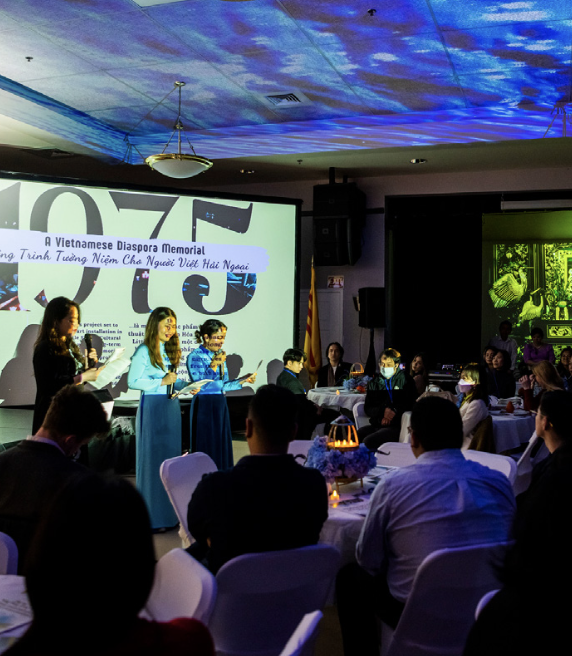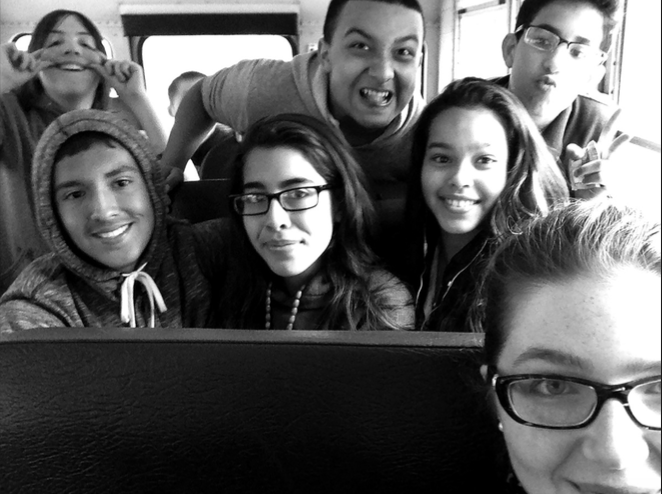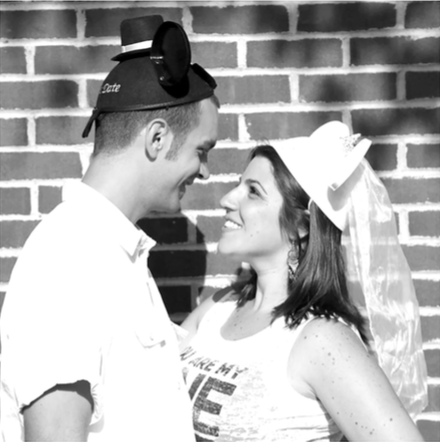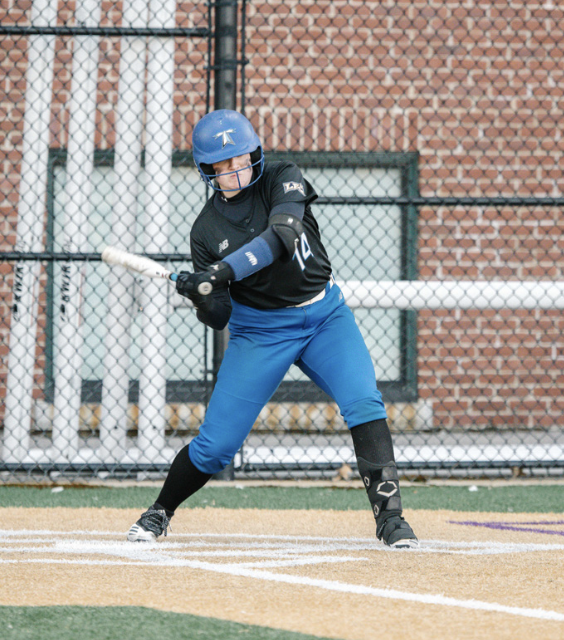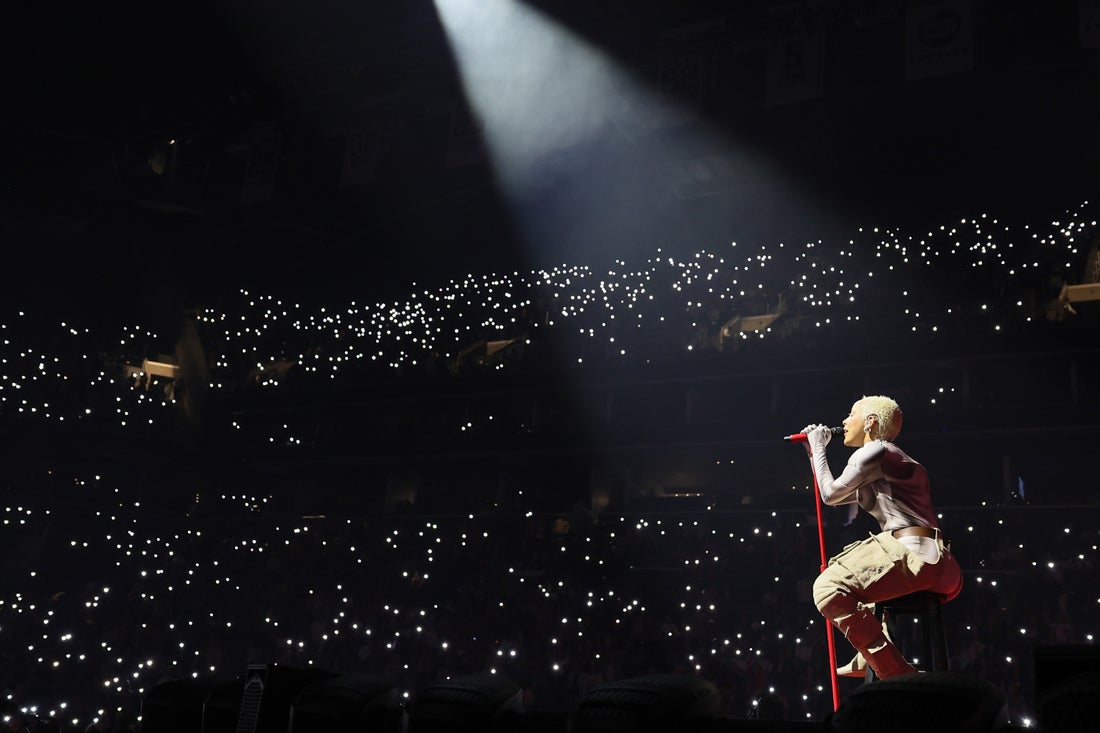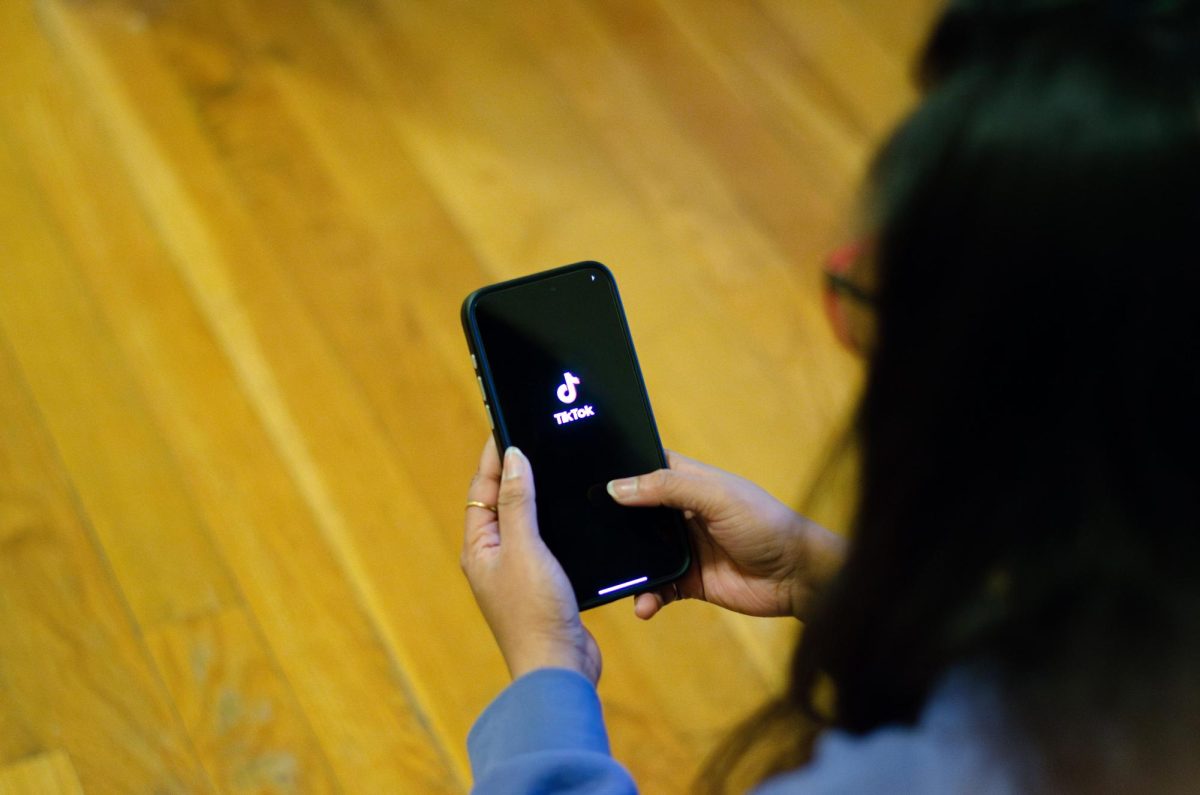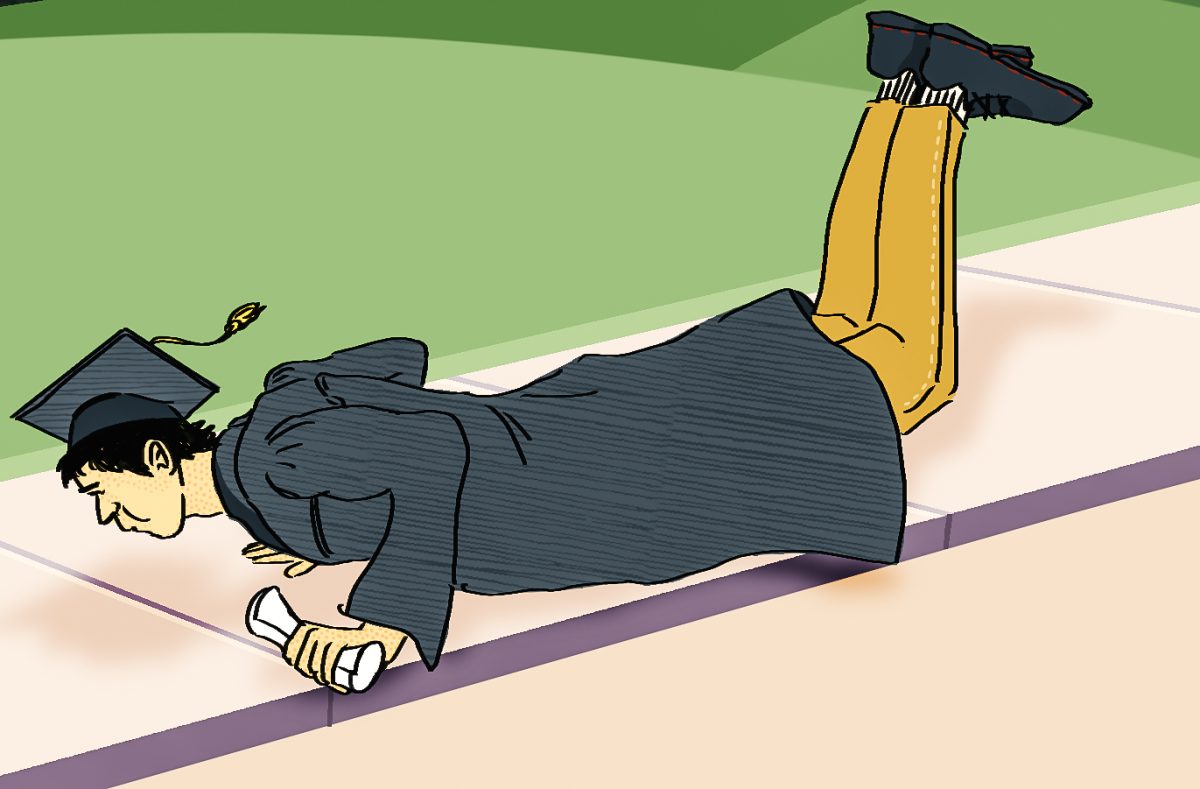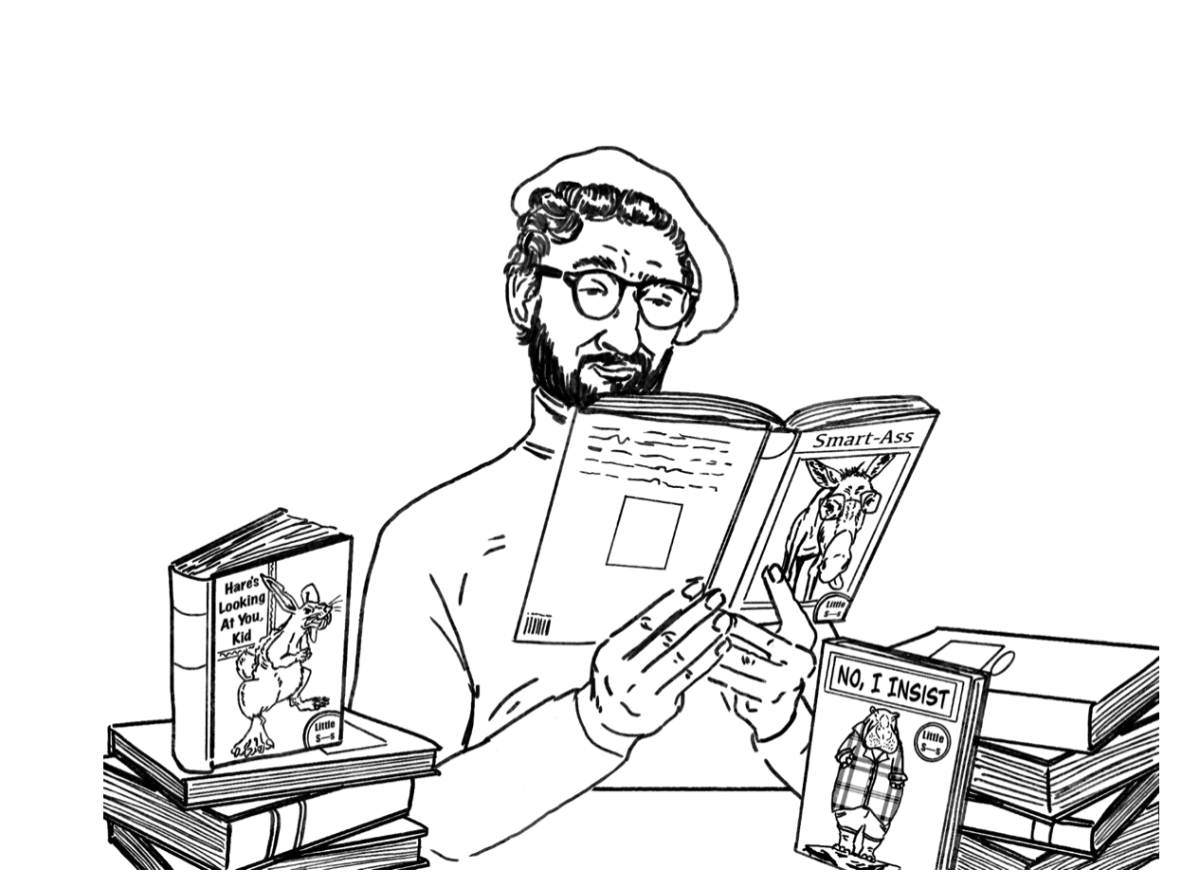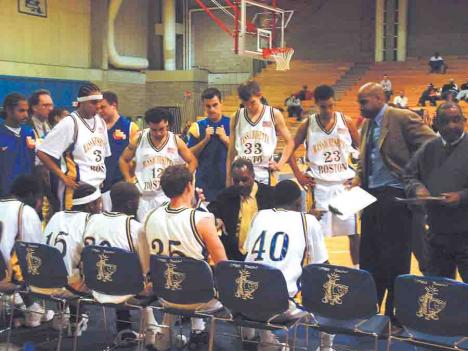Controversy Surrounds Watermark Fliers
December 12, 2002
Two recent fliers posted by The Watermark, the literary and art journal of UMass Boston, feature pinup girls. On one of the fliers, a woman with ruffle-bottomed underwear bends over with a smiling glance back toward the onlooker. The phrase “Sometimes exposure is a good thing,” is placed to the right side of the woman and the information for contributing submissions to the journal is below her bent-over body.
In response to the original fliers, which some people have found to be an offensive and possibly even pornographic depiction of a woman, a new flier was made. This time not by The Watermark, but by an unnamed person, those fliers, which have been referred to as the “beefcake” fliers, portray men as sex objects instead of women. One of the so-called counter-fliers pictured one man on his knees in front of another man in what appeared to some to be the suggestion of an impending homosexual act.
Nancy Derby, the editor of The Watermark, and one of the people who made the original fliers, said she was not aware of the offense the original fliers would incite. She does not believe that the fliers are pornographic. “I think something is pornographic if it’s explicitly sexual. Those fliers are flirtatious,” Derby stated, “I don’t see that as pornographic. The women are fully clothed, it’s not like they’re totally exposed. I actually don’t understand why people are offended by that.” Derby also said that she was not sure how many people were offended by the pinup girl fliers because she says very few people have contacted her office about the flier.
According to Derby, one student and one professor spoke to her about their disapproval of the flier, and deemed the pinup girl images offensive. Derby has a different view, “I do think there’s a difference between ’40s and ’50s pinup art and recent pornography.” Derby said that the pictures that were used in the counter-fliers did not have the same kitsch or camp element that make the pinup girl fliers inoffensive to her. The new fliers, she says, used recent pornographic images. “I think the entire idea of pinup, other than sex, it’s just something very appealing, the kitschiness of it, the campiness of it,” Derby said. The “beefcake” fliers held none of that playful sexuality as far as Derby is concerned.
While the Women’s Center coordinator Ginn Norris agrees with The Watermark’s position that pinup girls are not inherently offensive to women, Norris said that the problem she saw and heard about the fliers was not the pinup girls themselves. It seems the complaints which she has received have to do with the pairing of the image and the phrase on the flier. “Obviously pinup girls, that’s part of American culture, it’s been around forever and it is art,” she told The Mass Media, “So, it’s not the picture itself that’s offensive, I think it’s the context that they put it in, ‘Sometimes Exposure is a Good Thing’ next to the lady who’s showing off her ass. It’s putting a message out that shouldn’t be in a university setting, I don’t think. This should be a place where we’re getting an education, it shouldn’t be a place where we’re getting exploited as well. We get that everywhere else, coming to school on a bike, or going to a bar, or going to a show, or anywhere else that you go. So now it’s at school, too. And I’m really glad that somebody challenged that.” Norris also added later in the conversation that The Watermark “could use pinup girls that aren’t T and A.”
Norris referred to the feeling that the fliers came at a particularly bad time. There have been a lot of reports lately about anti-woman or exploitative images on campus that could have been prevented. She relayed the story of a Playboy pinball machine which was briefly located in the McCormack cafeteria’s gameroom. (The game has been since unplugged and is awaiting pick-up by the company that manages the game room.) Norris said that one good thing that has come out of this recent situation is that she knows that when women feel uncomfortable about things like this going on on campus, they come to the Women’s Center to tell her.
The founder of the Feminist Majority Leadership Alliance at UMB, Katie Frazier stated that “there’s other pieces of artwork that can represent The Watermark, other than a woman in a provocative position, in a degrading position.” Frazier went on to say that “using women in very degrading manner is not an acceptable way to get people at your event. Free food, okay; free coffee, okay; free gift, okay; using someone and degrading them is not okay. That is not a valid argument for this at all especially when so many people are having such a problem with it. When you’re running an organization and when you’re running something on campus … you need to take into consideration the whole population of the campus.”
In order to post any fliers on campus, one must go through the proper channels, in this case the Office of Student Life. Each flier must be approved in order for copies of it to be made with center or club funds. In addition, fliers must also be stamped with a date of expiration for posting. The Watermark fliers were not considered offensive by Donna Neal, assistant director of Student Life. Neal said that, “Although some people may have found it inappropriate, it is not obscene, and I wish that the folks who had complained about it had come to the Student Life office instead of going to another student center.” Neal said she felt as though the opportunity for everyone to learn something from the situation was lost because people didn’t express their complaints through the proper channels. “There are plenty of professors on campus that have examined women in the media and advertising. We could have discussed it and worked on it in an educational manner for everybody because that’s what this place is about, it’s an institution of education.”
Neal went on to say that the problem with the counter flier was mostly that, “It was not put up by The Watermark. The Watermark did not do it and people were putting it up specifically to comment on or malign or do harm to The Watermark, and ultimately that is the reason it was taken down is because it was purporting to be done by The Watermark. I can understand people want to express their viewpoint on it but that probably wasn’t the best way to go,” Neal said about the “beefcake” fliers.


